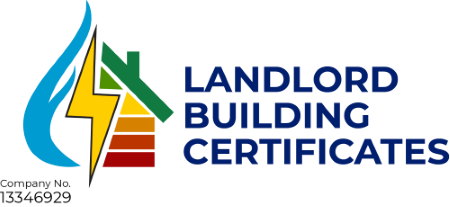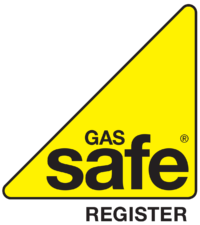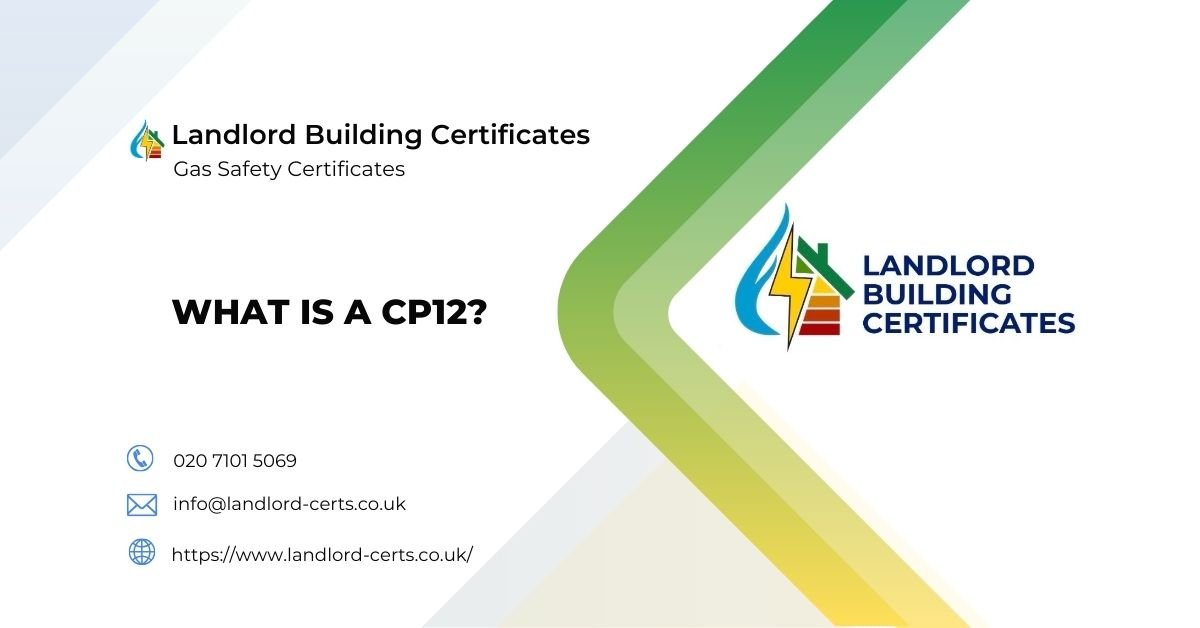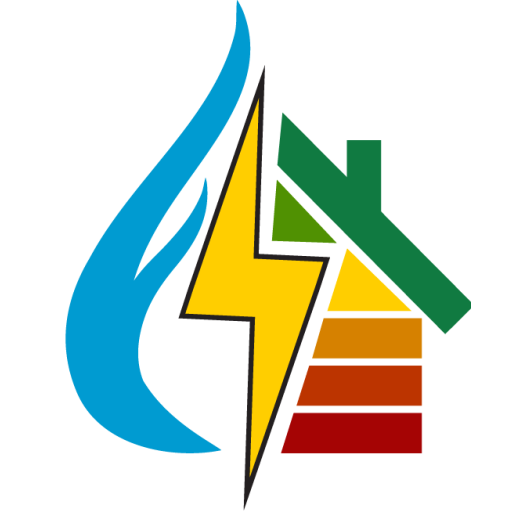What is a CP12 Gas Safety Certificate and Why is it Required in the UK?
A CP12, officially known as a Landlord Gas Safety Certificate, is a legal document issued by a Gas Safe registered engineer following a mandatory annual inspection of gas appliances, pipework, flues and ventilation in rental properties across the United Kingdom. The requirement for this certificate is governed by the Gas Safety (Installation and Use) Regulations 1998, which mandates landlords to ensure that all gas-related systems are safe and in proper working order. Failure to comply may result in severe penalties including fines or imprisonment, and could invalidate landlord insurance policies.
Here's What We Have Covered In This Article
Legal Requirement and Importance of CP12 Checks for Landlords
Statutory Compliance and Legal Obligations
Every landlord in the UK is legally obligated to arrange an annual gas safety inspection for each property they let out. The inspection must be conducted by a Gas Safe registered engineer. Upon completion of a satisfactory inspection, the engineer provides a CP12 certificate that outlines the safety status of all relevant gas appliances and infrastructure within the property. This document must be retained for a minimum of two years and a copy must be provided to tenants within 28 days of the inspection, or prior to new tenants moving in.
Ensuring Safety for Occupants
Gas related incidents can result in life-threatening outcomes such as carbon monoxide poisoning, fires or explosions. A CP12 inspection is designed to reduce the risk of such hazards by checking that all gas appliances and associated fittings are working safely. Engineers check for gas leaks, test how well appliances are burning gas, and make sure there’s enough ventilation. They also check that flues are in good condition and correctly installed. These steps help keep homes safe and avoid dangerous situations.
What a CP12 Gas Safety Inspection Involves
Comprehensive Appliance Checks
During a CP12 inspection, the engineer looks closely at all the gas appliances that are fixed in place. This usually includes the boiler, gas hob or cooker, gas fire, and sometimes water heaters. The engineer checks each one to make sure it’s working as it should and that it’s fitted with the correct ventilation. If anything isn’t right, even if it’s a small issue, they’ll record it on the certificate. Depending on how serious the issue is, they might label it as At Risk, Immediately Dangerous or Not to Current Standards.
Operational Safety and Functionality
The engineer checks how the appliances actually run. They’ll make sure the boiler starts up properly, burns cleanly, and shuts off when it should. They also check the flame colour, that safety cut-offs work, and that thermostats are responding properly. With boilers, things like the expansion vessel and internal seals are checked to make sure the system holds pressure and heats water efficiently.
Flue and Ventilation Assessment
It’s important that any gases produced by your appliances are safely removed from the property. This is why checking the flue and ventilation is a key part of the CP12 check. The engineer looks to see if the flue is correctly fitted and clear of blockages. For room-sealed boilers, which take in air and release waste gases outdoors through a sealed unit, the engineer will test the air intake to make sure it’s airtight and drawing in clean air.
Flue Position and Terminal Clearance
The engineer also checks where the flue exits the building. It has to be far enough from windows, doors or air vents to meet current Building Regulations. If the flue is below two metres from the ground, it should have a guard fitted. These checks help make sure harmful gases don’t come back into the home through nearby openings.
What are the 26.9 Gas Safety Checks?
Breakdown of the 26.9 Checklist
The 26.9 refers to a comprehensive list of checks that engineers often follow during a landlord gas safety inspection. This covers key points such as checking the gas meter, testing gas tightness, inspecting appliance flame pictures, checking burner pressures, and verifying correct ventilation. Each of these steps is important for confirming that the system is working safely and within manufacturer specifications.
Why this Checklist Matters
Although not a legal requirement to follow this exact list, many Gas Safe engineers use it as a reliable way to make sure no aspect of the inspection is missed. It ensures consistency in inspections and gives landlords peace of mind that the property is being thoroughly checked.
You can find further detail on recommended checklists by visiting the official Gas Safe Register website.
What Happens During a CP12 Check?
Initial Safety Checks and Interviews
The visit usually starts with the engineer asking the tenant or landlord if there have been any recent problems with the boiler, hot water, or heating system. If no one is home, the engineer will switch on the heating and run the hot water to check that everything is working correctly. This early stage is useful for identifying any obvious signs of failure or inconsistency in performance.
System Pressure and Appliance Setup
Before opening up the boiler, engineers will check the system’s pressure levels. If necessary, the pressure will be topped up to the correct level. After removing the boiler casing, they inspect internal parts for signs of wear or leaks. They also clean filters, electrodes and other components if the inspection includes routine servicing.
Flue Gas Analysis and Gas Rate CalculatMo – Landlord Building Certificatesion
Many modern boilers no longer allow visual burner checks, so engineers rely on flue gas analysers. These devices are inserted into the flue to measure combustion levels, carbon monoxide output, and oxygen readings. Engineers also calculate the gas rate using a gas rate calculator or manual method to make sure the appliance is consuming the correct volume of gas.
Pro Tip: Store digital CP12 certificates in the cloud with automated reminders to never miss a renewal date.
Book Your CP12 Gas Safety Inspection Today
Stay compliant and avoid penalties. Book a Gas Safe registered engineer now for your legally required CP12 check.
What Does a Gas Meter and Pipework Inspection Include?
Key Points in Visual Pipework Inspections
Engineers will visually inspect any accessible gas pipework throughout the property. They check for corrosion, signs of leaks, or poor workmanship. Pipe runs should be supported by the correct clips and must not be too close to electrical cabling or sockets. Pipe routing through walls and sealed exits is checked to ensure compliance with building standards.
Gas Meter Checks and Valve Labelling
The gas meter is another focal point. Engineers check the emergency control valve is working and properly labelled so tenants can shut off the gas if needed. They also look at bonding to the main earth, confirming it is secure and correctly placed. The physical condition of the meter and meter box is recorded, especially if the box is outdoors and exposed to the elements.
Why a Gas Tightness Test is Performed
Tightness testing is essential for confirming there are no leaks in the system. It involves a let by test to check that the valve is sealing correctly, followed by a tightness test where the pressure is monitored for any drop. This part of the inspection confirms the integrity of the entire gas system and is backed by strict tolerance guidelines found in the Gas Industry Unsafe Situations Procedure (GIUSP).
To read more about pipework regulations, you can visit our page on gas pipe safety compliance.
What Happens if an Appliance Fails the CP12 Check?
Warning Notices and Safety Actions
When a gas appliance is found to be unsafe, the engineer issues a warning notice. This might result in the appliance being shut off or labelled as Immediately Dangerous if it poses an immediate risk. In some cases, a defect notice is issued that allows continued use under monitored conditions. The engineer will clearly mark the appliance and explain the issue to the landlord.
Recording Non Compliance and Next Steps
Engineers must log any faults on the CP12 certificate and provide detailed information on the type of fault and recommended action. Landlords are expected to act on these recommendations promptly. If the appliance cannot be repaired immediately, it must remain switched off until a qualified engineer resolves the issue.
You can read more about these actions and safety categories on our guide to gas appliance classifications.
Bundle Your Certificates and Save Time
Get your CP12, electrical, and energy certificates done in one visit. Save time and simplify compliance.
What is the Difference Between a CP12 and a Boiler Service?
CP12 Certificate Versus Routine Servicing
A CP12 inspection checks for legal compliance and safety issues, while a boiler service is more in-depth and involves cleaning, maintenance, and performance tuning of the appliance. Servicing usually includes internal component checks, descaling if needed, and checking combustion efficiency with tools such as a flue gas analyser. Landlords can arrange for both at the same time, but they serve different purposes.
Do You Need Both?
Although a boiler service is not a legal requirement, regular servicing is strongly recommended. A well-maintained boiler performs better, lasts longer, and is less likely to break down unexpectedly. Booking a service at the same time as the CP12 inspection can save time and reduce the risk of missed problems.
Learn more about our combined gas safety and boiler inspection and servicing packages at Landlord Building Certificates services.
How Do Landlords Obtain a CP12 Certificate?
Booking with a Gas Safe Registered Engineer
To obtain a valid CP12 certificate, landlords must hire a Gas Safe registered engineer. The engineer will attend the property, perform all required safety checks and issue the certificate if the installation meets the required standards. It’s important to confirm the engineer’s registration number on the Gas Safe Register before booking the inspection.
What to Expect on the Day
Most inspections take between 30 minutes and one hour, depending on the number of gas appliances in the property. The engineer will require access to each appliance and the gas meter. After the inspection, the certificate is usually issued electronically or on paper, detailing each appliance and whether it passed or failed.
You can arrange a qualified inspection with us by visiting our CP12 certificate booking page.
What Are the Responsibilities of Landlords and Tenants?
Annual Inspections and Documentation
It is the landlord’s duty to ensure an annual gas safety check is completed and that a valid CP12 certificate is held at all times. A copy must be provided to existing tenants within 28 days of the check, and to new tenants before they move in. In the case of rental periods shorter than 28 days, the certificate should be displayed within the property.
Tenant Rights and Safety Awareness
Tenants have the right to view the gas safety record for their property and to report any suspected faults. They should also allow reasonable access for the engineer to complete the inspection. Landlords who fail to meet their legal obligations may face action from the Health and Safety Executive.
For a detailed breakdown of legal expectations, visit our landlord compliance guide.
Are Digital CP12 Certificates Accepted?
Paper vs Digital Formats
Digital CP12 certificates are widely accepted and are legally valid as long as they are signed, dated, and include the Gas Safe registration number. Many landlords now prefer digital records as they are easier to store and share with tenants and letting agents.
Advantages of Digital Management
Using a digital compliance system helps landlords stay organised and meet deadlines more efficiently. Reminders, storage, and quick access to historic records make this a preferred option for portfolio landlords and letting agencies.
Final Thoughts on Staying Compliant
Gas safety is a legal requirement, but it also helps protect people and property. By arranging annual checks and acting quickly on any faults found, landlords show that they are responsible and committed to tenant wellbeing. Booking with trusted, registered engineers and keeping clear records is the most effective way to meet the law and avoid disruption.
For reliable, hassle-free CP12 checks and servicing, Landlord Building Certificates offers convenient appointments and expert service across the UK.
Frequently Asked Questions
How long is a CP12 certificate valid?
A CP12 certificate is valid for 12 months from the date of the inspection.
What happens if I do not get a CP12 certificate?
You may face fines, legal action, or invalidated insurance if you fail to comply.
Can tenants request to see the CP12 certificate?
Yes, tenants have a legal right to view the gas safety record for their property.
Does a newly installed boiler still need a CP12?
Yes, the new appliance must be included in the annual safety check.
Can I combine a CP12 inspection with other property certificates?
Yes, combining it with electrical and energy checks can save time and reduce visits. We offer combined packages for landlord compliance.





